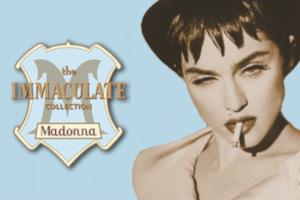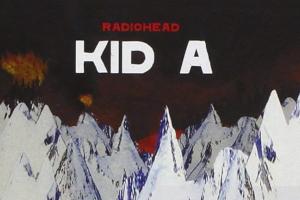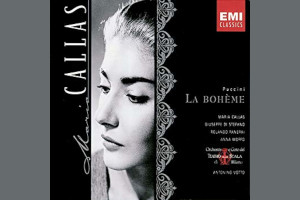Student Life
Feature Fridays
The Immaculate Collection, by Madonna

Welcome to Feature Fridays! Every week, the AU music library staff will be highlighting a different CD or artist from our collection. This week, Student Assistant Dan McCahon will review The Immaculate Collection by Madonna.
Madonna, the Queen of Pop, released her single “Medellín” for her upcoming album Madame X. Her musical career has spanned decades, with her start in the 80s and her second album Like A Virgin selling over 21 million copies worldwide. Madonna has solidifed herself as an icon in the pop music genre and given the release of this single it would make sense to reminisce and track how Madonna has grown as an artist.
The immaculate collection is an anthology released in 1990 of Madonna’s greatest hits as well as two new songs. This collection features hits like Material Girl, Like A Virgin, Like A Prayer, and Vogue. It opens with Holiday, a bubbly pop classic that sets the tone for the album, a tone which is carried and built upon by Lucky Star and Borderline the second and third songs in the album. However, the bubbliness and pop fanfare does not eliminate Madonna’s songs from having deeper meaning. Madonna’s lyrics and the focus of her songs are not fluff, and I find Borderline to be indicative of the issues she had with her life of stardom and finding love amidst those challenges. Some lyrics include “I don’t want to be your prisoner, so baby, won’t you set me free/ Stop playing with my heart/ Feels like I’m losing my mind/ You just keep on pushing my love/ Over the borderline.” Her frustrations and rebellion against how love is being expressed and the emotional toll this carries are compelling. Set against the poppy backtrack of synth, piano, and percussion this song is strong in both message and execution.
This collection of Madonna’s works is fantastic for its breadth of subject matter and style, showcasing Madonna’s versatility and chamelonic ability to reinvent herself and be successful with each new iteration. With an appreciation of Madonna’s past we can better understand how her upcoming album will fit into her ouvre. Already, with the release of the single “Medellín” Madonna has spoken out against sexist standards for female artists in pop, specifically the age at which pop artists are “allowed” to make music. To get a greater understanding of Madonna’s talents and the sheer volume of her work, check out The Immaculate Collection at the Music Library, along with our other Madonna CDs!







